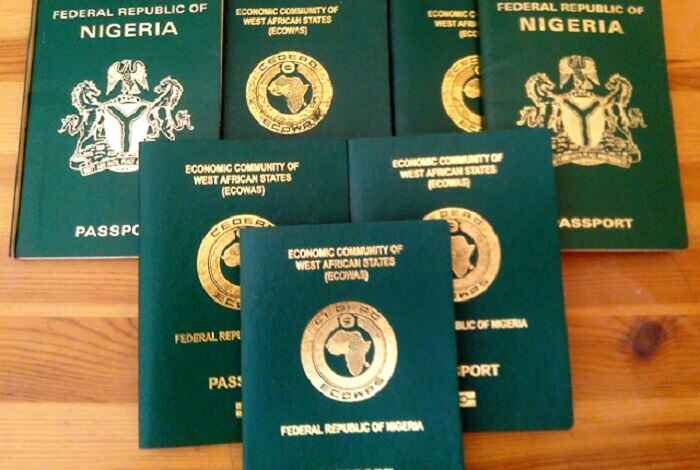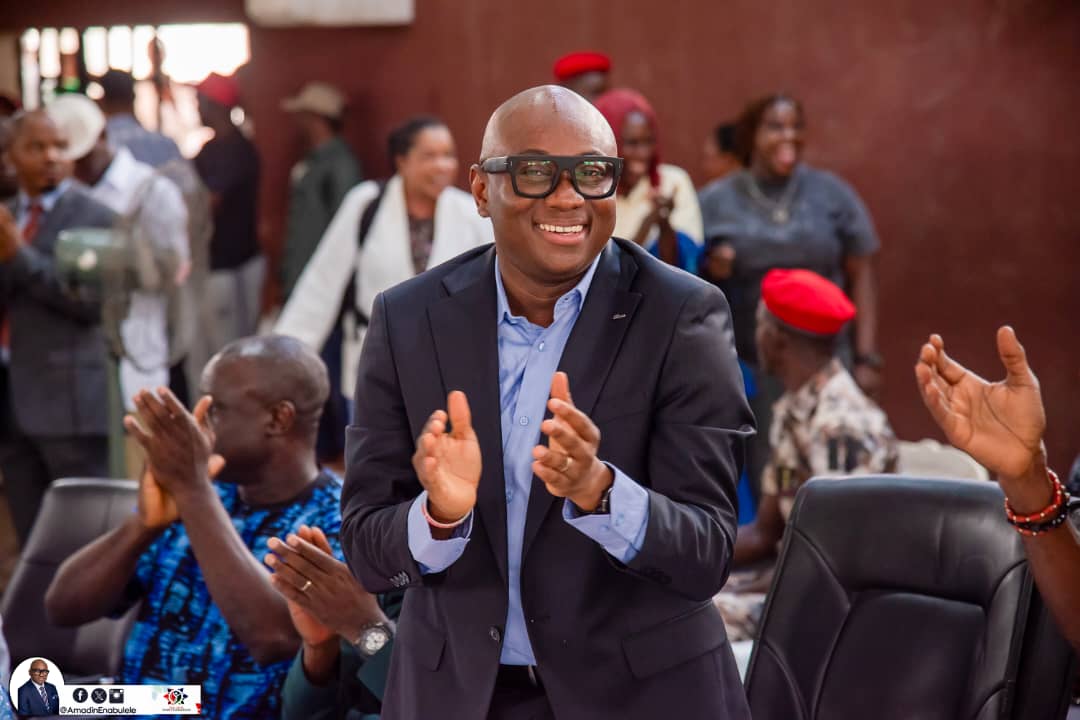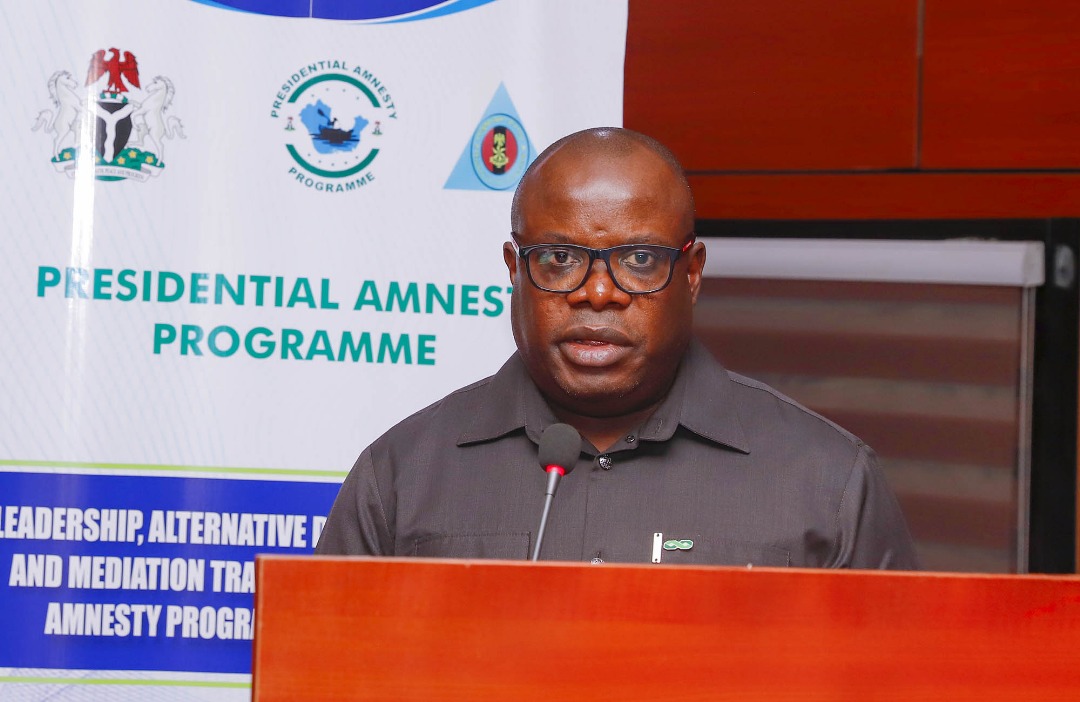News
Nigerian Passport Falls By 38 Places In Global Ranking

The Nigerian passport has fallen by 38 places in a global passport ranking in the last 17 years.
This is according to the Henley Passport Index reports between 2006 and 2022 collated by The PUNCH
The Henley Passport Index ranks passports according to the number of countries their holders can access visa-free or with a visa-on-arrival programme.
Although the Nigerian passport gained 11 more destinations, it fell from 62nd in 2006 to 100th in 2022.
This shows a steady decline in strength amongst the 199 countries and 227 travel destinations studied.
READ ALSO: Immigration Releases Three Easy Steps To Fast-Track Passport Renewal Process In Two Weeks
While the green passport now grants visa-free or visa-on-arrival access to 46 countries, up from the previous total of 35 in 2006, Nigerians cannot access over 181 travel destinations without a visa, visa-on-arrival or e-visa arrangement.
As of September 2022, travelers with Nigerian passports can only traverse 25 countries visa-free.
However, that number rises to at least 46 destinations when visa-on-arrival or e-visa programmes are added to the mix.
Countries offering visa-free, visa-on-arrival and e-visa access to Nigerians as of the time of this report include: Benin Republic, Burkina Faso, Cameroun, Cabo Verde, Chad, Comoros, Côte d’Ivoire, Djibouti, Ethiopia, The Gambia, Ghana, Guinea, Guinea-Bissau, Kenya, Lesotho, Liberia, Madagascar, Mali, Mauritania, Mauritius, Mozambique , Niger, Rwanda, São Tomé and Príncipe, Senegal, Seychelles, Sierra Leone, Somalia, Togo, Uganda, Zambia, Zimbabwe.
READ ALSO: Why Passport Applicants Face Challenges – Aregbesola
Others include: Iran, Kyrgyzstan, Maldives, Timor-Leste, Antigua and Barbuda, Barbados, Dominica, Haiti, Saint Kitts and Nevis, Suriname, Fiji, Micronesia, Tuvalu and Vanuatu.
According to the Henley Passport Index which is based on data from the International Air Transport Association, a fall or improvement in ranking is the result of several factors.
They include the country’s efforts to strengthen its diplomatic relations with other nations and its efforts to modernise its visa processes and improve security measures at its borders.
However, experts reasoned that the strength of the green document is only reflecting the internal challenges bedeviling Nigeria.
In an earlier interview with our correspondent, Research Director, Centre for China Studies, Abuja, Charles Onunaiju, argued that the measly visa-free access Nigerians enjoy globally reflects the internal woes the country is experiencing under the present government.
He said, “We have a challenge. Since Nigeria is becoming inhospitable, especially for young people with no opportunities, there is desperation to go abroad.
“Almost all embassies are now enforcing regulations on Nigerians they don’t impose on other nationals. That is very clear. People feel that almost every Nigerian wants to leave here. That’s partly true because the nation has mishandled the potential in it. Our leaders have not harnessed the vast human resources available to us.
“If we want to earn respect from outside, we must begin from home. If we want the world to take us seriously, we must get your acts together.”
But Nigeria’s passport issuing agency, the Nigeria Immigration Service, reasoned otherwise.
It said visa-free mobility is largely a reflection of bilateral agreements between countries and within regional blocs.
The spokesperson of the NIS, Amos Okpu, who earlier discussed with our correspondent on the issue said, “This ranking is based on passport admissibility. And that is largely a function of mutual understanding, reciprocity among countries which does not necessarily reflect the true strength of a passport. A good example is the European Union and the ECOWAS.
“While we appreciate the work done by Henley & Partners, we are more concerned with deepening our passport technology to meet up with the standards of the ICAO; ensuring that our passport complies with ICAO guidelines.”
READ ALSO: FG Dismisses Report Of Shortage Of Passport Booklets
Okpu argued that Nigeria has been a public Key Directory of the ICAO since April 2009 and, therefore, sits in a respectable position in the comity of nations.
The Public Key Directory is a central repository for exchanging the information required to authenticate electronic Machine-Readable Travel Documents such as e-Passports, electronic ID cards and Visible Digital Seals.
Asserting the NIS’ position, Okpu said, “What we put more emphasis on here is our standing in the ICAO. When ICAO alerts us of any lapses with our passports, we get to work. Nigeria has been part of the Public Key Directory since 2009 and it took us complying with several passport security specifications to be reflected on that directory.
PUNCH
News
Former Delta North senator Peter Nwaoboshi Dies

Peter Nwaoboshi, the former senator representing Delta north, is dead.
Details of the circumstances surrounding his death were unclear at the time of this report, but according to reports, the former senator died in Abuja on Friday, aged 68.
In a statement, Sheriff Oborevwori, governor of Delta, expressed “profound grief” over the demise of the former lawmaker.
The governor described his demise as a monumental loss to the state, the Anioma nation, and Nigeria.
READ ALSO:Woman Taken For Dead Wakes Up Inside Coffin Few Minutes To Her Cremation
In a condolence message signed by Festus Ahon, his chief press secretary (CPS), Oborevwori hailed the late Nwaoboshi as a dedicated son of Delta and a bold champion of Anioma interests, whose legacy in nation-building will endure.
The governor said the late senator’s distinguished tenure in the national assembly, particularly as chairman of the senate committee on Niger Delta affairs.
“Nwaoboshi lived a life of service to his people, his party, and the country, bequeathing a heritage of bravery, loyalty, and commitment to public duty,” Oborevwori said.
READ ALSO:Fourteen Nigerian Banks Yet To Meet CBN’s Recapitalisation Ahead Of Deadline
“On behalf of the Delta State government and people, I mourn my dear friend, Senator Peter Onyelukachukwu Nwaoboshi.
“I extend deepest condolences to his family, the Anioma people, members of the All Progressives Congress, and everyone touched by his life.
“May God grant his soul peaceful rest and comfort to all who grieve this irreplaceable loss.”
News
Grassroots To Global Podium: Edo Sports Commission Marks Enabulele’s First Year In Office

The Indoor Sports Hall in Benin City came alive on Wednesday as the Edo State Sports Commission rolled out the drums to celebrate the first anniversary in office of its Executive Chairman, Hon. Amadin Desmond Enabulele. Management, staff, coaches and athletes gathered in an atmosphere charged with pride, reflection and optimism.
The colourful ceremony drew executives and members of various sports associations, officials of the Sports Writers Association of Nigeria (SWAN), coaches, athletes and other key stakeholders in Edo sports.
In her welcome address, the Acting Permanent Secretary of the Commission, Mrs. A. P. Amenze, praised Hon. Enabulele for what she described as focused and purposeful leadership. She said the past year had seen renewed confidence, discipline and energy return to the state’s sports ecosystem.
Adding excitement to the event were exhibition bouts and demonstrations by the Kung Fu, Karate, Taekwondo and Judo associations, staged in honour of the Executive Chairman.
READ ALSO:2025 NYG: Enabulele Charges Edo Coaches On Performance
Speaking for SWAN Edo State, Chairman Comrade Kehinde Osagiede commended Hon. Enabulele’s open-door leadership style and consistent support for sports development. He noted that the Commission had effectively driven Governor Monday Okpebholo’s “Catch Them Young” policy through practical grassroots programmes that identify and groom young talents across the state.
In recognition of his contributions to sports development and media relations, Comrade Osagiede conferred the Patronship of SWAN Edo State on Hon. Enabulele and presented him with a special anniversary card.
Goodwill messages followed from Executive Directors of the Commission, including Hon. Frank Ilaboya (Edo North), Coach Baldwin Bazuaye, MON (Edo South), Barr. Anthony Ikuenobe (Edo Central), and Mrs. Sabrina Chikere, Executive Director, Sports Development and Operations. Representatives of coaches, athletes and sports associations also took turns to acknowledge the progress recorded under the current leadership.
In his stewardship address, Hon. Enabulele expressed gratitude to Governor Monday Okpebholo and Deputy Governor Rt. Hon. Dennis Idahosa for the trust placed in him, noting that their backing and shared vision had driven the Commission’s achievements.
READ ALSO:Enabulele Lauds Okpehbolo For Creating Enabling Environment For Football To Thrive
He highlighted Team Edo’s third-place finish at the 9th National Youth Games in Asaba, where the state recorded its best-ever outing with 79 medals—33 gold, 18 silver and 28 bronze—reinforcing Edo’s reputation as a national sports powerhouse.
The Chairman also pointed to the impact of inclusive and grassroots sports programmes, citing Favour Ojeabu, a visually impaired para-cyclist who won three gold medals to emerge Africa’s champion at the African Track Para-Cycling Championship in Egypt.
Other milestones listed included outstanding performances by Edo para powerlifters on the international stage, historic achievements in cricket, weightlifting, cycling, judo and deaf athletics, as well as structural reforms such as the repositioning of Bendel Insurance FC and deeper investment in grassroots sports development.
Cultural performances added colour and tradition to the celebration, as stakeholders closed the event united in their assessment of the past year as a truly transformative period for sports development in Edo State.
News
Otuaro Tasks Media On Objective Reportage

The Administrator, Presidential Amnesty Programme (PAP) Dr. Dennis Otuaro has charged media practitioners particularly members of the Ijaw Publishers’ Forum to promote ethical journalism through their reportage.
He gave the charge in Warri on Wednesday during the 2nd Annual Ijaw Media Conference organised by the Ijaw Publishers’ Forum (IPF).
Represented by Princewill Binebai, spokesman, Ijaw Youth Council (IYC) Worldwide, Otuaro while stating that the Niger Delta stories have been told in such a way that is quite different from what is obtainable in the real sense, said this, IPF must do everything possible to correct.
The administrator added: “I am happy that Ijaw journalists have boldly come out together to champion the Ijaw struggle in a very dynamic perspective”.
READ ALSO:IPF Hosts Media Conference, Seeks Protection For N’Delta Environment
“The Ijaw story was misrepresented over the years, but IPF’s emergence had corrected this error and the story is gradually changing for better.”
Otuaro, however, challenged Ijaw media practitioners to be objective, truthful, accurate and fearless in their reportage to correct many years anomalies of the Ijaw struggle.
He admonished members of IPF to see themselves as brothers and love one another in the discharge of their activities to achieve a common goal.

 Metro4 days ago
Metro4 days agoSuspected Kidnappers Abduct 18 Passengers On Benin-Akure Road

 News4 days ago
News4 days agoI’m Not Distracted By Anti-Niger Delta Elements, Says PAP Boss, Otuaro

 News4 days ago
News4 days agoOPINION: Time For The Abachas To Rejoice

 News5 days ago
News5 days agoEdo Assembly Charges Contractor Handling Ekekhuan Road To Accelerate Work

 Sports3 days ago
Sports3 days agoJUST IN: Dembélé Named FIFA Best Men’s Player, Bonmatí Wins Women’s Award

 News3 days ago
News3 days agoWage Dispute: Court Orders PSG To Pay Mbappe €61 Million

 Metro4 days ago
Metro4 days agoNDLEA Seizes 457kg of Cannabis, Arrests Suspected Trafficker In Edo

 Headline3 days ago
Headline3 days agoAircraft Crashes In Owerri With Four Persons Onboard

 News4 days ago
News4 days agoEx-Nigerian Amb., Igali, To Deliver Keynote Address As IPF Holds Ijaw Media Conference

 Business3 days ago
Business3 days ago9th FirstBank Digital Xperience Centre Launched In UNIBEN


























